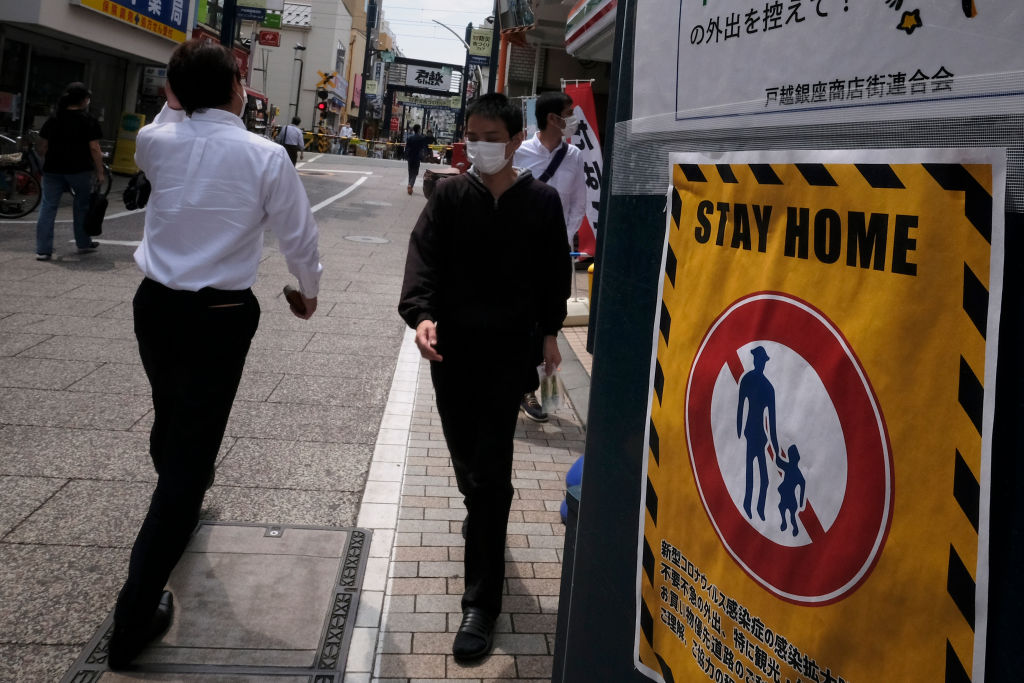There has certainly been no shortage of praise for the NHS over recent weeks, and the speed at which the service has moved to meet the coronavirus threat has undoubtedly been impressive. But it is always worth looking abroad to see how the NHS could improve. And Japan’s own version offers a useful model.
I had my first real experience of the Japanese health care system last year when I fell down a concrete staircase at my workplace. I was treated at one of Tokyo’s most prestigious hospitals (the one prime minister Shinzo Abe uses, apparently). The treatment I received was quick and efficient, if a little impersonal. The customer may be God in Japan, but as a patient, I felt more like a defective product on an assembly line being passed from one operative to another, and then summarily dispatched. I was struck that at no point did anyone ask if I was in pain, though they did check very quickly if I had insurance.
Everyone resident of Japan is required to have health insurance. The government’s scheme is funded by a tax based on income, topped up with fees for services paid at the hospital (generally 30 per cent of the cost of treatment, with a lower rate for seniors, and nothing for people on very low incomes). Coverage is wide (including mental illness and most dental care) and there is a ceiling to what you can pay, so no one should ever be ruined as a consequence of falling ill.
This transparent system of funding is a crucial difference with the NHS and greatly affects how the system is perceived and how it operates. In Japan there is no illusion that health care is free; people can see exactly how much they are paying when the tax demand arrives; and, on top of that, they need to get their wallets out when they actually use it. And the cost is considerable (my annual bill was £5,000 pounds last year).
What’s more, the insurance system, introduced in the early 1960s, is not weighed down by any sentimental nation building mythology. As a result, criticism is not deemed heretical. The idea of applauding the nation’s doctors and nurses, hard working people in a nation of hard working people, would be regarded as absurd.
This practical, unemotional, outlook discourages overheated rhetoric and probably leads to more rational decision-making. Unlike the UK, Japan has not put its health service on a ‘war footing’, and the production lines of existing hospitals have not been re-tooled to deal with a single product. Treatment of other conditions has not been seriously impacted.
In terms of quality of care, the OECD in its most recent report on the Japanese system was largely favourable, but with certain caveats. On the positive side was the abundance of resources; Japan has more beds per capita than any other OECD country (five times as many as the UK), and the ‘high volumes’ of high tech medical equipment.
However, there is an over usage problem. Japanese visit hospitals far more frequently than other nations (three times the international average, according to one report). There are several reasons for this. Japan does not have local GPs and so has no referral system. People go to hospital with even minor conditions, often for want of any alternative. In this regard the UK is certainly better, and some Japanese doctors have called for the adoption of this part of the British system.
Another factor is the tendency of Japanese seniors to treat their local hospital as a sort of social club, making unnecessarily frequent visits, and sometimes using ambulances (for which there is no charge) as taxis to get there. Here Japan is a victim of its own societal success; unlike the UK, A&E departments are not battle zones littered with the drink and drug addled, so if you’ve really go nothing better to do, are pleasant enough places to pass the time.
There is also a chronic shortage of specialists, which makes the system especially vulnerable to a sudden surge in demand, and this is believed to be the prime reason for Abe’s state of emergency declaration last month, despite a very small number of Covid-19 deaths. It seems Abe was sending a typically Japanese ‘read the air’ message, not so much stay at home, or don’t work, but don’t visit hospitals for trivial reasons.
Overall, though it would be interesting to see how British attitudes towards the NHS changed if people were made aware of how much of their taxes went towards it, I suspect that the deeper health care lessons the UK can learn from Japan are not to be found in a comparison of the respective medical systems, but in the attitudes and lifestyles of the people.
In Japan, the maintenance of one’s health is still seen primarily as the responsibility of the individual. Personal and public hygiene are prioritised to an almost obsessive degree, and participation rates for exercise and sport are high. And the nutrient rich diet has given the Japanese among the lowest obesity rates in the world.
How much this helped keep Covid-19 at bay will be for future analysts to discover, but with Nature magazine suggesting the obese are two to six times more likely to require hospitalisation if they contract the virus, it may well have been significant, if not decisive. Perhaps the Japanese should be applauding themselves.







Comments